Research Symposium
22nd annual Undergraduate Research Symposium
Colby Anderson Poster Session 2: 10:00-10:45/Poster #27
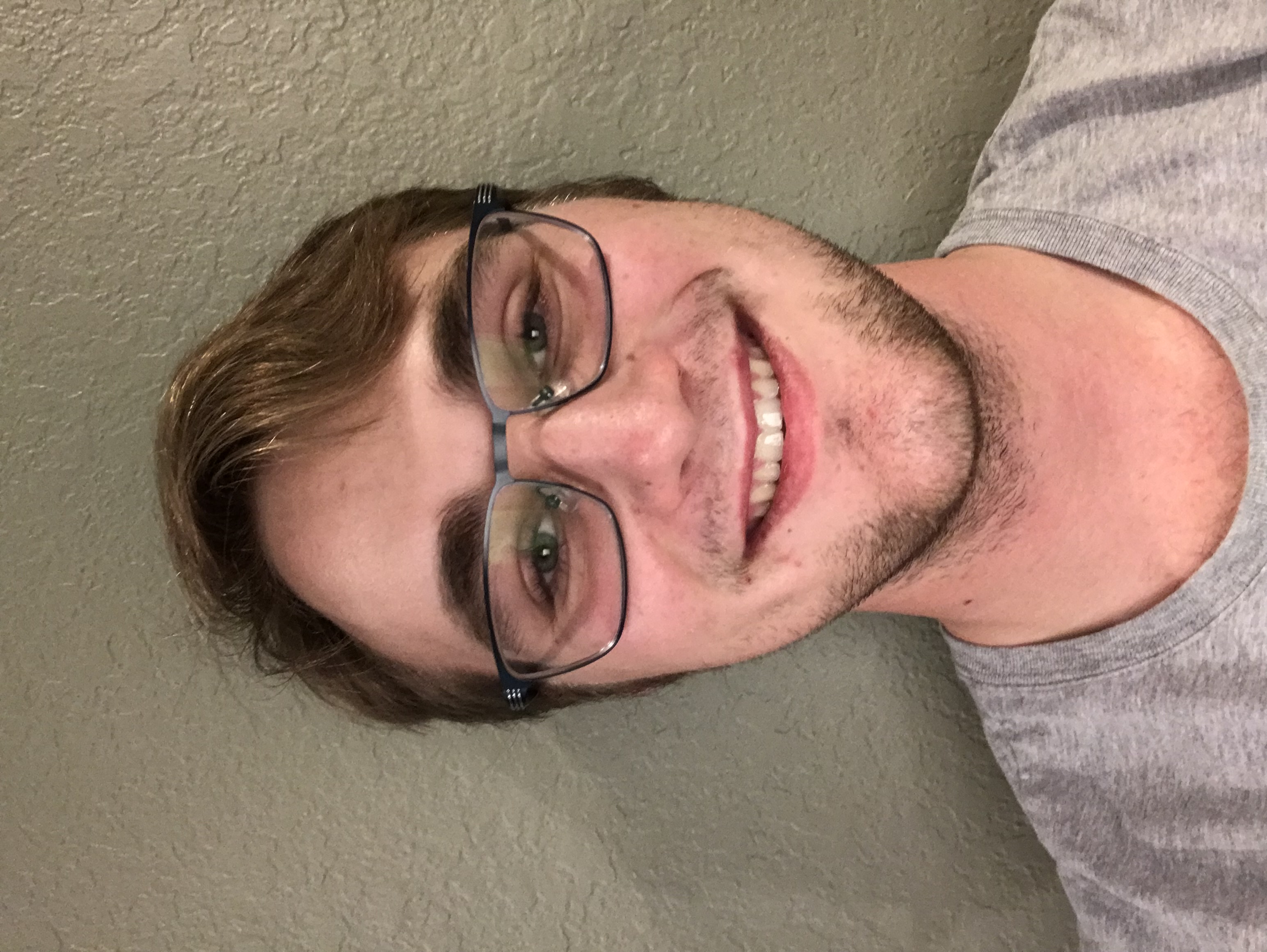
BIO
I grew up close to the beach in Coral Springs, Florida. I enjoy learning about marine science as a result of growing up near the sea. However, I want to pursue my interests in ecosystem conservation and restoration.
Habitat selection of juvenile green turtles (Chelonia mydas) in the Arabian Gulf
Authors: Colby Anderson, Joshua CullenStudent Major: Environmental Science
Mentor: Joshua Cullen
Mentor's Department: Earth, Ocean, and Atmospheric Science Mentor's College: Florida State University Co-Presenters: N/A
Abstract
Animal habitat selection is an important area of study for making inferences and predictions on the distribution of organisms over geographic and environmental space. Climate change has raised the average temperature of water bodies, such as the Arabian Gulf, forcing marine life such as sea turtles to adapt to the changing conditions or migrate elsewhere to survive. Beyond temperature, there are other variables that characterize the ecological niche of a marine species, such as the amount of available light, depth, proximity to food sources, nutrient concentrations, and more. Although a number of studies have previously investigated the movements of green turtles (Chelonia mydas) in the rapidly warming Arabian Gulf, none to date have evaluated habitat selection in this species. This study will investigate the effects of temperature, primary productivity, and depth on the distribution of juvenile green sea turtles in the Arabian Gulf. We hypothesize that most turtles will prefer to stay within nearshore shallow waters since these regions provide the dense beds of seagrass or macroalgae that green turtles feed upon. Tracks from 10 satellite tagged juvenile green turtles were processed using a state-space model to account for location error for all relocations. Temperature, depth, and primary production were selected as variables on which to estimate juvenile green turtle distributions since these variables are expected to be highly influential for this species. The habitat selection model will consist of a logistic regression to compare the selection of each used location against a set of available locations throughout their range.
Keywords: Green Turtle Habitat Selection
22nd annual Undergraduate Research Symposium
Remi Ventura Poster Session 2: 10:00-10:45/Poster #60
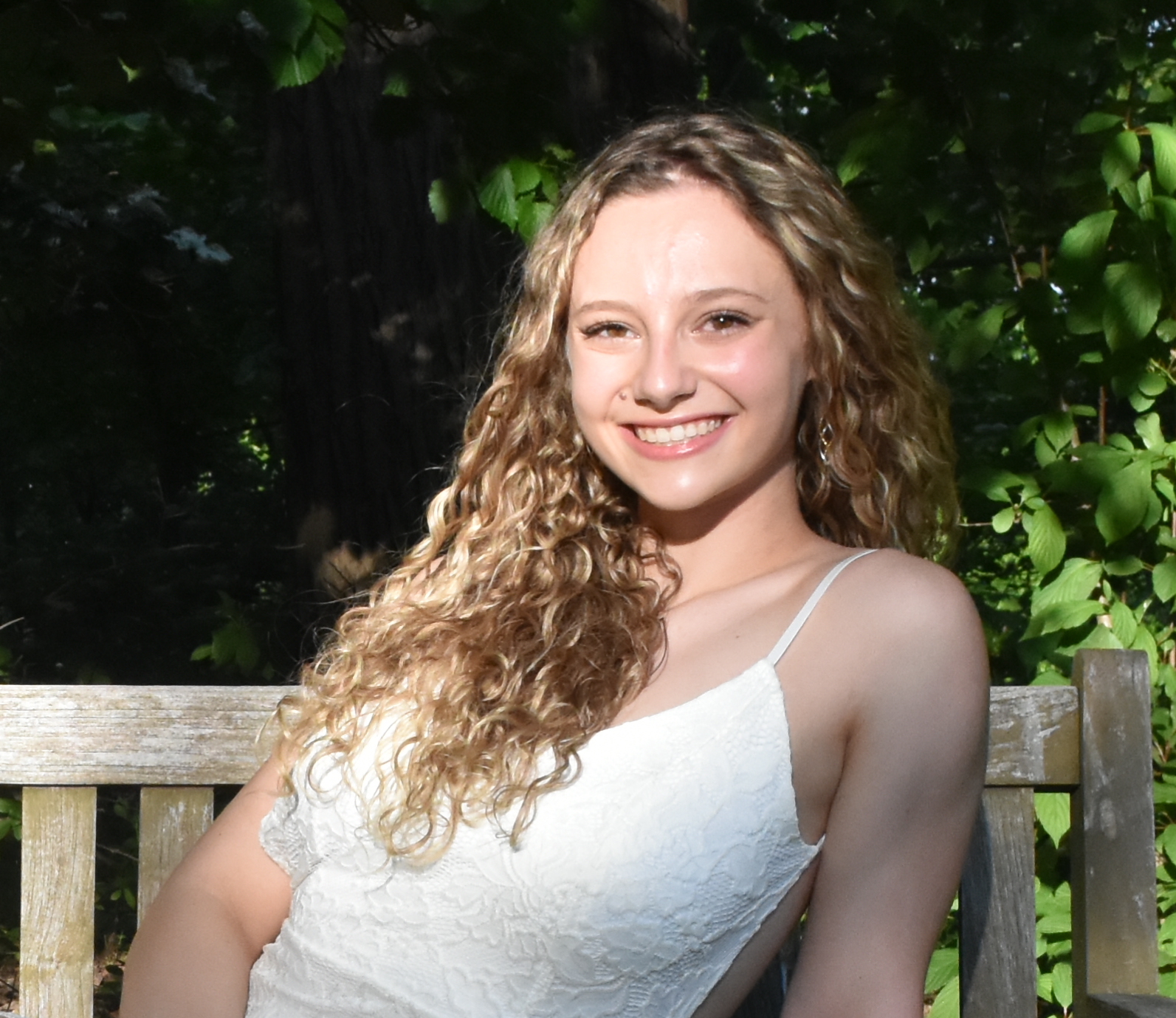
BIO
My name is Remi Ventura and I am a freshman in the Honors Program from New Jersey. Since attending Florida State University, it has been my goal to obtain as much experience as I can. Working beneath Bobbie Renfro through UROP has been an amazing, eye-opening experience. I have been able to learn and participate in meaningful research with live specimens which has furthered my passion for hands-on work with marine organisms. We studied the proper food intake necessary to cultivate marine sponge organisms in a closed system within the lab. In the future, I hope to work as a Marine Animal Rescue Veterinary Specialist and continue to help with the preservation and restoration of marine ecosystems. Through working with my mentor and the environmental science major, I hope to learn more about issues affecting marine life and different ways that I can help in solving them. In addition to UROP, I am involved in the Jewish Student Union as Treasurer, Phi Mu Fraternity Cabinet as Finance Assistant, and the Honors Student Association as Relay for Life Chair. I am also an aerialist for the FSU Flying High Circus and will be performing this April in over half our performances.
The Aquaculture of Sponges--Coral Reef Superheroes--in a Closed System
Authors: Remi Ventura, Bobbie RenfroStudent Major: Environmental Science/Criminology
Mentor: Bobbie Renfro
Mentor's Department: Department of Biological Sciences Mentor's College: College of Arts and Sciences Co-Presenters:
Abstract
Sponges have numerous responsibilities in coral reef ecosystems that support the survival and function of corals. Sponges provide structural support to reef corals improving their survival and assisting with coral reef regeneration following physical damage. Despite their importance to the maintenance of coral reef ecosystems, sponges are poorly understood in part because they are difficult to maintain in closed aquaculture systems used in many laboratory settings. The research conducted herein will improve our understanding of an integral part of closed-system sponge cultivation: proper food distribution. The effects of two different quantities of food on the growth and survival of the sponge, Axinella pomponiae, were tested in this study. Four individual sponges were subdivided to control genotype and half of each individual was used in each treatment group (Recommended food level: 60 mL and Elevated food level: 160 mL). Food treatments were calculated using a ratio derived from Reiswig (1971) who stated that 1 cm^3 of sponge tissue can filter 1 liter of water per hour. Sponges were fed live phytoplankton containing four different species of microalgae. The results of this study can be used as a guide for cultivation of sponges in laboratory settings. Lab cultivation will allow for the generation of sponge populations to be used for research to better understand these diverse organisms. Additionally, this will allow for the maintenance of stock populations to be used for restoration, preventing the need for fragmentation of natural sponge individuals for restoration activities.
Keywords: sponge cultivation, sponges, closed system lab, coral reefs
22nd annual Undergraduate Research Symposium
Jacob Johnson Poster Session 6: 2:30-3:15/Poster #57
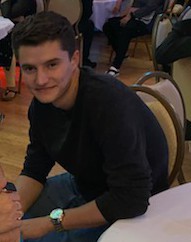
BIO
I have a strong interest in archaeology and the associated fields and am working towards post-graduate studies, hopefully abroad. I'm interested in almost all time periods but would like to pursue research in pre-colonial history, as well as develop skills in GIS systems.
Evergreen Plantation Ceramic Analysis
Authors: Jacob Johnson, Dr. Jayur Madhusudan MehtaStudent Major: Anthropology
Mentor: Dr. Jayur Madhusudan Mehta
Mentor's Department: Department of Anthropology Mentor's College: College of Arts & Sciences Co-Presenters:
Abstract
The Evergreen Plantation is a historical site and is one of the
most preserved plantations in the United States. The Evergreen
Plantation Archaeological Survey began in 2018, under Dr.
Mehta. The research aimed to develop a comprehensive study of
the plantation and the lives of the people who lived and worked
there. Regarding the research I’ve done includes the collection
of quantitative and qualitative data from the artifacts found at
the plantation, an analysis of the ceramic artifacts, the creation
of a chronology from the ceramic artifacts, and a detailed look
into the morphology of the ceramics. Ceramic artifacts carry a
lot of information with them and are especially useful in dating
sites, and when analyzing the structure of the potsherds we can
form a better understanding of the daily lives of the people on
this plantation. All this information is to develop an accurate
picture of plantation life and further our understanding of black
history in the Southern United States. The sorting of the artifacts
and the analysis of the ceramics were input into Excel. Further,
the ceramic analysis involved the consultation of already
established pottery databases to accurately obtain dating and
type information. The potsherds that maintained enough form
information will be illustrated. The resulting information and
chronology shows a date range between the late 18th to early
20th century and the type of the ceramic artifacts were mostly
kitchen wares, pointing to utilitarian uses. The research is still
ongoing so there is potential for data fluctuation.
Keywords: anthropology, archaeology, history, ceramics
22nd annual Undergraduate Research Symposium
Denis Le Poster Session 3: 11:00- 11:45/Poster #14
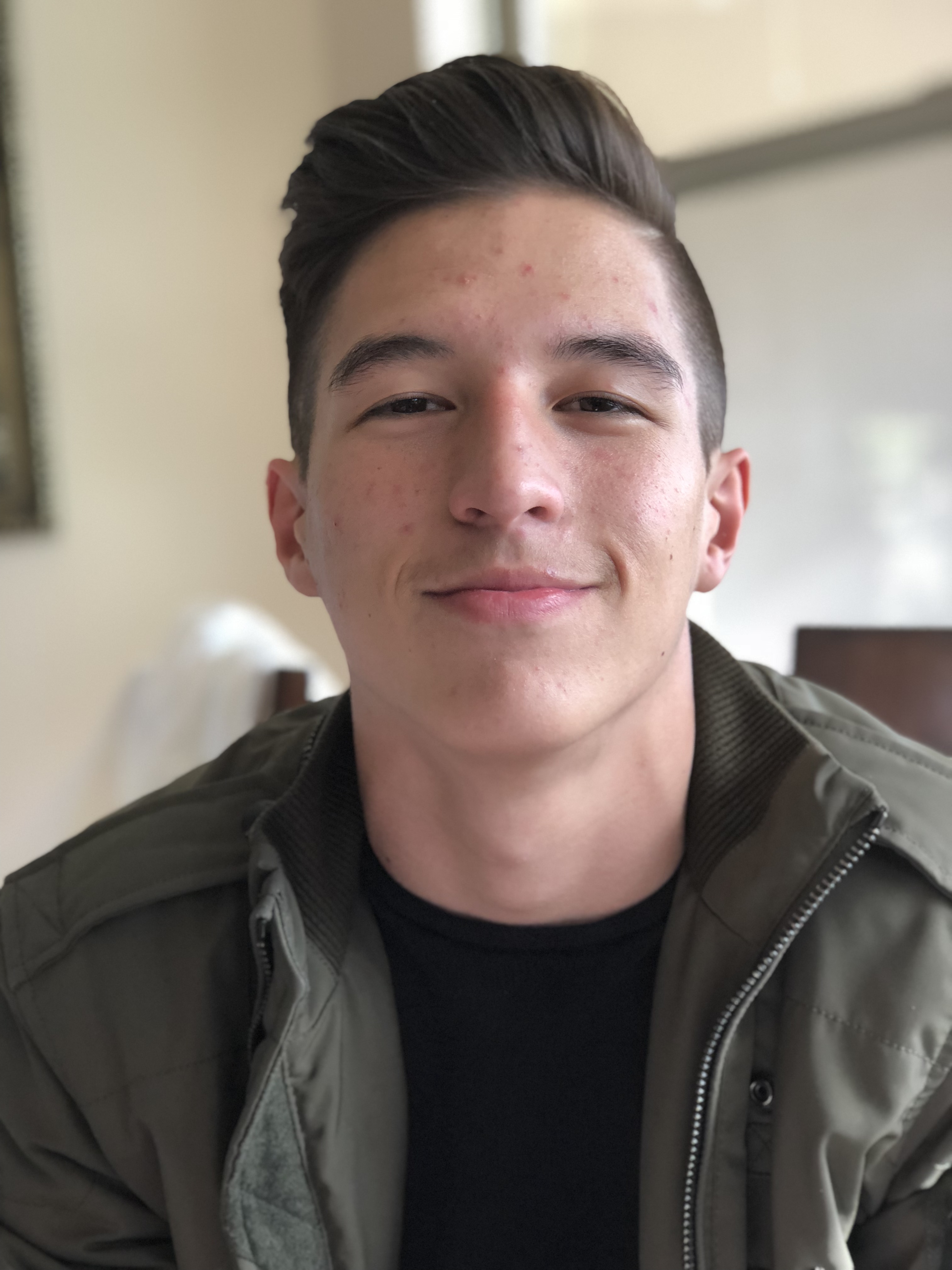
BIO
My name is Denis Le. I am a sophomore at Florida State University in the Pre-Clinical Professions major. I am working through the IMS program with the aspiration to go to medical school after my first four years. In our research project with Dr. Ni, we are working on creating a scanning tunneling microscope.
Building Ultra-Low Noise Control Systems for Scanning Tunneling Microscopy
Authors: Denis Le, Guangxin NiStudent Major: Pre-Clinical Professions
Mentor: Guangxin Ni
Mentor's Department: Physics Mentor's College: Physics Co-Presenters: Kersten Galeta, Rogelio Baucells, Keely Paul
Abstract
Nano-imaging the elementary excitations observed within the Terahertz range in solid materials permits observation of phase transitions and identification of topological surface states. By coupling an Edinburgh Instrument FIRL100 gaseous far-infrared laser source to an in-house constructed optical microscope, we analyze the alpha to beta phase transition of Bi4I4 in an attempt to capture signatures of the surface state changes that parallel this transition. Utilizing the laser source requires identifying distinctive laser lines via the installation of a proper detector for THz (far-infrared) light. To identify the power lines, we first transition Deuterated methanol (CD3OD) from a liquid to a gas and then analyze various lines based on the results of this chemical until the most powerful line is discovered. The second step of the process—performing nano-imaging—relies on the information gathered from the scattered light that results from the nano-tip’s interaction with laser light and the sample itself. The information collected from this, as well as scanning the XY dimensions of the sample, permits us to develop a detailed image of the sample. This research is still in the process, but thus far we have discovered the most powerful laser line to have a line designation of 10R24, a wavelength of 10.220, a drive reading of 4106, and a power output of 49W. This is still under experimentation due to some machinery complications. Thus, we have not yet been able to proceed towards the process of nano-imaging.
Keywords: Microscope, Physics, Nano
22nd annual Undergraduate Research Symposium
Andrea Bordon Poster Session 1: 9:00 - 9:45/Poster #14
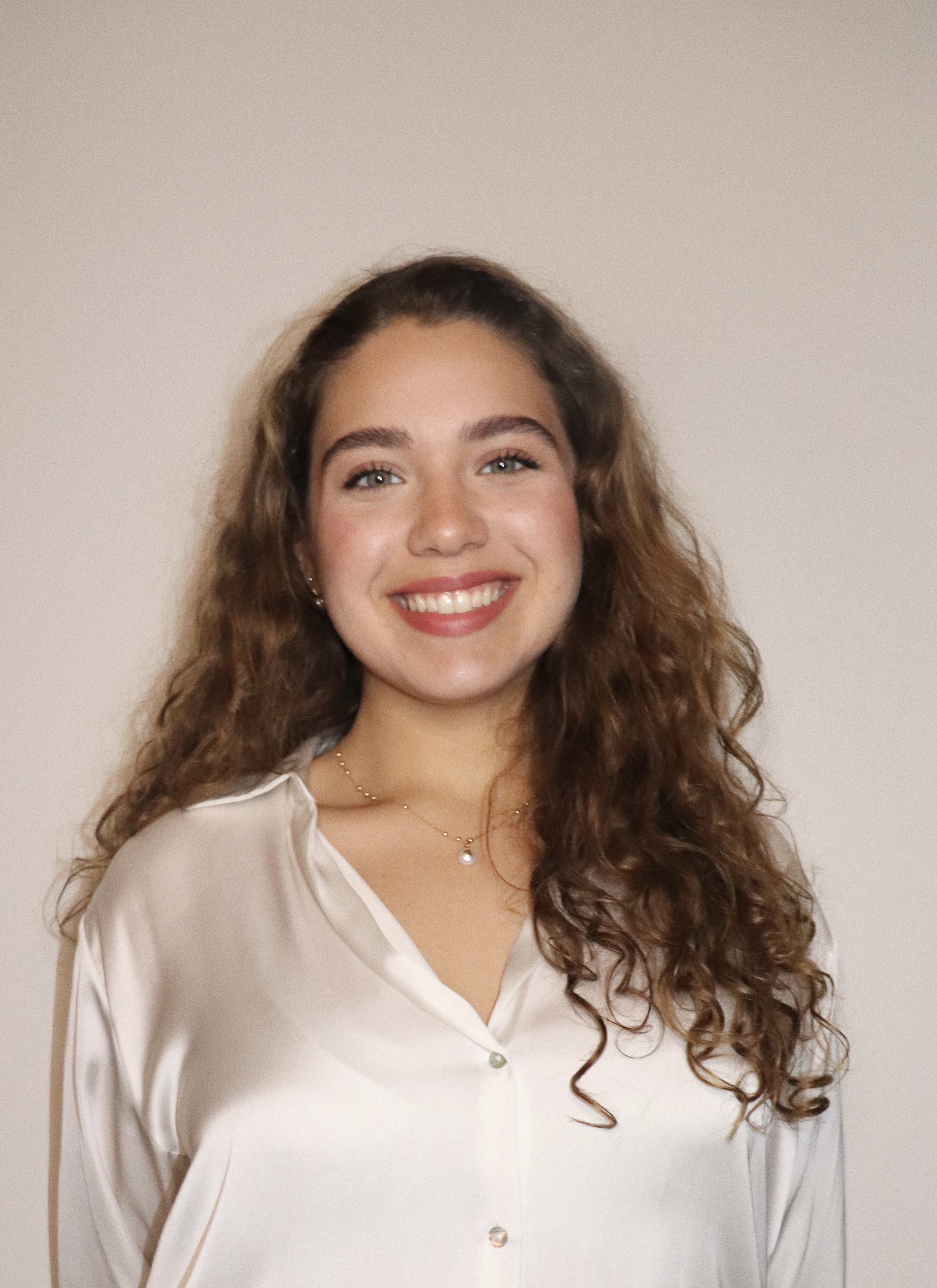
BIO
Im currently a sophomore at Florida State University, pursing a bachelors in economics and international affairs. I am mainly interested in research related to economics, specifically differences in cognitive function due to socioeconomic circumstances. I am also involved in preliminary research concerning retention rates of economic principles among college students. With the research experience gained at Florida State, I will seek a masters in economics and work for an organization devoted to assisting international development. In the long run, I hope to serve as a Foreign Service Officer for the United States.
Turning Down Higher Wages? A Lab-in-Field Experiment on Tax Code Notches and Labor Market Decisions
Authors: Andrea Bordon, Dr. Doug NortonStudent Major: Economics and International Affairs
Mentor: Dr. Doug Norton
Mentor's Department: Economics Mentor's College: College of Social Sciences and Public Policy Co-Presenters: Julia Correll
Abstract
Mani et al. (2013) find that poverty negatively affects cognitive function across different populations. In this paper, we extend their insights into a labor market environment by conducting a lab-in-field experiment in which participants from a student population choose a wage each round and complete a known number of real-effort tasks across static and dynamic environments. In the static environment, subjects choose from a fixed menu of wages across rounds. In the dynamic environment, the menu of wages depends on subjects’ past wage decisions. In both settings, subjects must consider how their wage earnings interact with eligibility for public assistance benefits. Similar to Mani et al., our experimental intervention involves an easy and hard prime and we recruit subjects of both low and high income to test whether poverty affects labor market decision making in this lab-in-field environment. To supplement this analysis, we collect a variety of other measures from participants including executive function measurements of inhibitory control as well as demographic and other background information related to labor market exposure and poverty. We also conduct interviews with a subset of randomly selected participants to gain perspective on their strategy during the experiment and whether the experiment relates to their own experiences navigating the intersection between labor markets and public assistance programs. This research will improve our understanding about how poverty affects decision-making in a labor market environment and may document how incentives created by the phase-out of public assistance benefits can create an obstacle to higher wage earnings.
Keywords: Economics, Labor Market, Social Science
22nd annual Undergraduate Research Symposium
Sonya-Nicole Weidner Poster Session 6: 2:30-3:15/Poster #5
BIO
Sonya-Nicole Weidner is a first year sophomore at Florida State University's College of Social Sciences and Public Policy, where she is pursuing a degree in Political Science (BA) and then a Juris Doctor degree. She hopes to soon begin interning at law firms and legal organizations in order to determine the field of law to pursue. She is from Clearwater, Florida and a graduate of the International Baccalaureate (IB) program. Sonya is currently a member of CHAARG, Phi Alpha Delta, and UROP. Being able to complete undergraduate research throughUROP has been the best opportunity Sonya has had this year; she is grateful for the mentorship from Dr. Samantha Tackett.
Undergraduate Student Perceptions and Valuation of Campus-based Group Tutoring
Authors: Sonya-Nicole Weidner, Dr. Samantha TackettStudent Major: Political Science
Mentor: Dr. Samantha Tackett
Mentor's Department: Division of Undergraduate Studies Mentor's College: Academic Center for Excellence Co-Presenters:
Abstract
Group tutoring sessions are provided to undergraduate students by the Academic Center for Excellence (ACE) throughout the academic year at Florida State University (FSU). Our study examined the preferences and purposes of students who attended group tutoring sessions during the fall 2021 and spring 2022 academic semesters. Study results will be shared with the ACE to support their student service mission. Our results are derived from attendance, survey, and interview data sources. Results include the characteristics of students who attended group tutoring sessions frequently, STEM curriculum sessions with the highest attendance rates, and the day of the week for the highest attendance to sessions.
Keywords: Group-tutor, student's success, tutoring
22nd annual Undergraduate Research Symposium
Libby Ferguson Poster Session 2: 10:00 - 10:45/ Poster #30
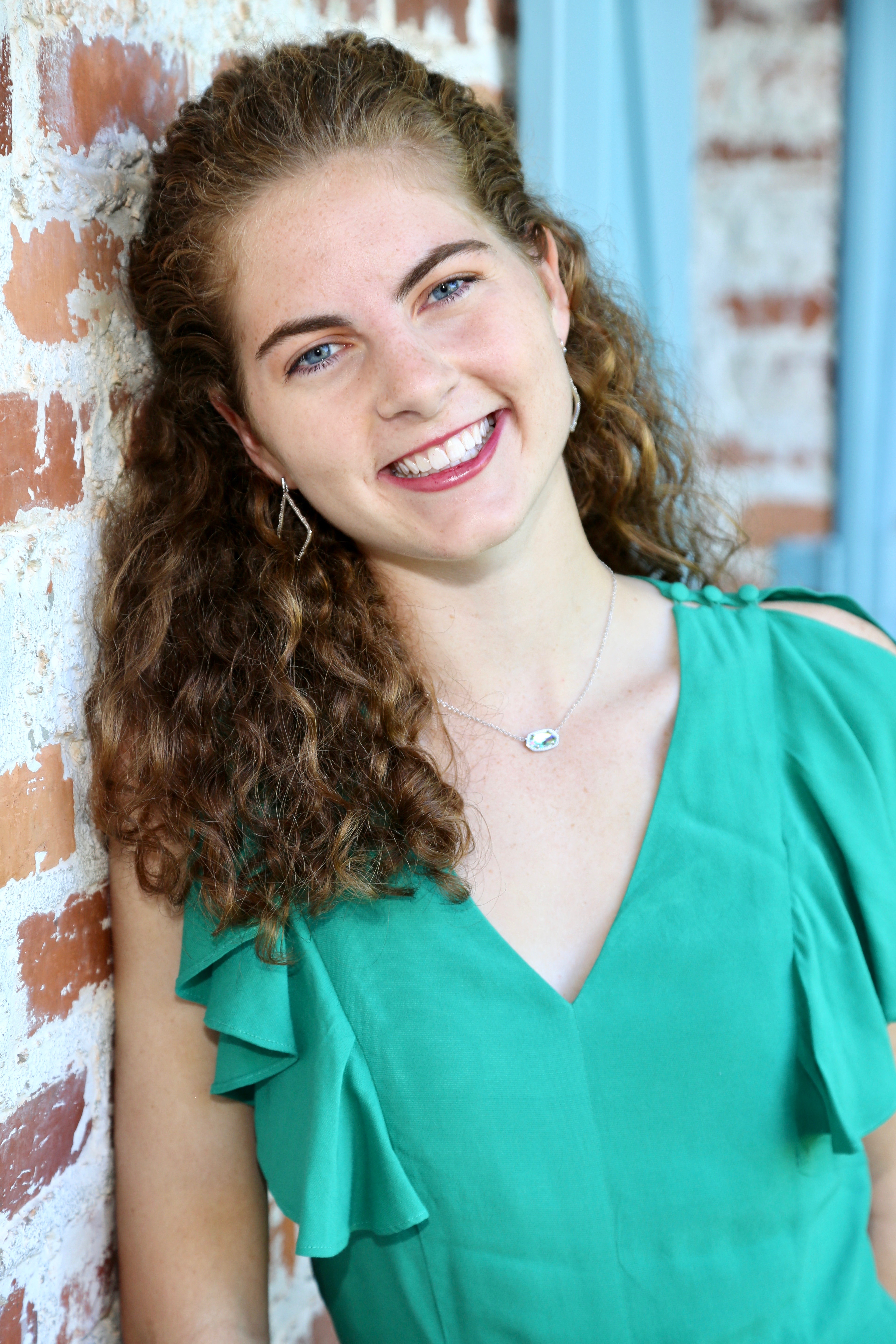
BIO
Libby is a sophomore from Winter Park, Florida. She aspires to complete her bachelor’s degree and receive a master's before pursuing a job as a Forensic Accountant. Her dream job is to work as a Forensic Accountant for the FBI. Libby has always been interested in the differences between men and women in the workplace and was very eager to assist in this research project as it pertains to her future career.
Is there evidence of gender-discrimination in Accounting graduates of Florida State University?
Authors: Libby Ferguson, Dr. Aleksandra “Ally” B. ZimmermanStudent Major: Accounting and Criminology
Mentor: Dr. Aleksandra “Ally” B. Zimmerman
Mentor's Department: Accounting Mentor's College: College of Business Co-Presenters: Sasha Epelbaum
Abstract
The field of Accounting is rife with job growth and opportunities for undergraduate students to develop a lucrative career in business. This project focuses on the success rates of Florida State University alumni who graduated with a degree in Accounting, and whether their gender had correlations with measures of their success. Some of the variables associated with “success” examined were salary levels, whether or not participants had been promoted to C-suite positions, whether they had been promoted to partner, and if they reported experiencing discrimination. Our research team collected data through the use of an optional survey sent to all FSU Accounting graduates from the classes of 1975-2020, and using publicly-available online data about participants, primarily from LinkedIn.com. The results of this data collection are still undergoing, but it is crucial to understand and minimize gender discrimination in an industry with a history of such issues.
Keywords: Accounting, Gender Discrimination
22nd annual Undergraduate Research Symposium
Andrew Lodge Poster Session 3: 11:00-11:45/Poster #15
BIO
I am a second-year student from Jacksonville, FL. I have a passion for psychology and plan to pursue a Ph.D. in clinical psychology following graduation! I would love to eventually work in academia so I can continue to have an impact on society with research. I am currently researching suicide, but my research interests also include the causes and treatment of personality disorders and anxiety disorders.
Investigating the Relationship Between Negative Emotionality and Thwarted Belongingness
Authors: Andrew Lodge, Sean DoughertyStudent Major: Psychology and Statistics
Mentor: Sean Dougherty
Mentor's Department: Department of Psychology Mentor's College: College of Arts and Sciences Co-Presenters:
Abstract
Negative emotionality is the degree to which individuals experience negative emotions and is associated with psychopathology broadly. Thwarted belongingness is the degree to which an individual feels socially isolated and is specifically associated with suicidal thoughts and behaviors. The present study aims to improve our understanding of the strength of the relation between negative emotionality and thwarted belongingness, as well how this relationship is moderated by variables such as age, depth of religious belief, and political orientation, in order to guide future research on negative emotionality and thwarted belongingness and their potential relations to suicidal thoughts and behaviors. We hypothesized that negative emotionality would be a moderately, positively correlated with thwarted belongingness. Participants consisted of undergraduate students at a large southeastern university and ranged from 18 to 22 years of age. Negative emotionality was assessed using the Positive and Negative Affect Schedule—Negative Emotionality subscale, and thwarted belongingness was assessed using the Interpersonal Needs Questionnaire—Thwarted Belongingness subscale. There was a large, positive association between negative emotionality and thwarted belongingness, r(75) = .51, p < 0.001.
Keywords: thwarted belongingness, negative emotionality, suicide
22nd annual Undergraduate Research Symposium
Isabelle Lednicky Poster Session 4: 12:30 - 1:15/Poster #39
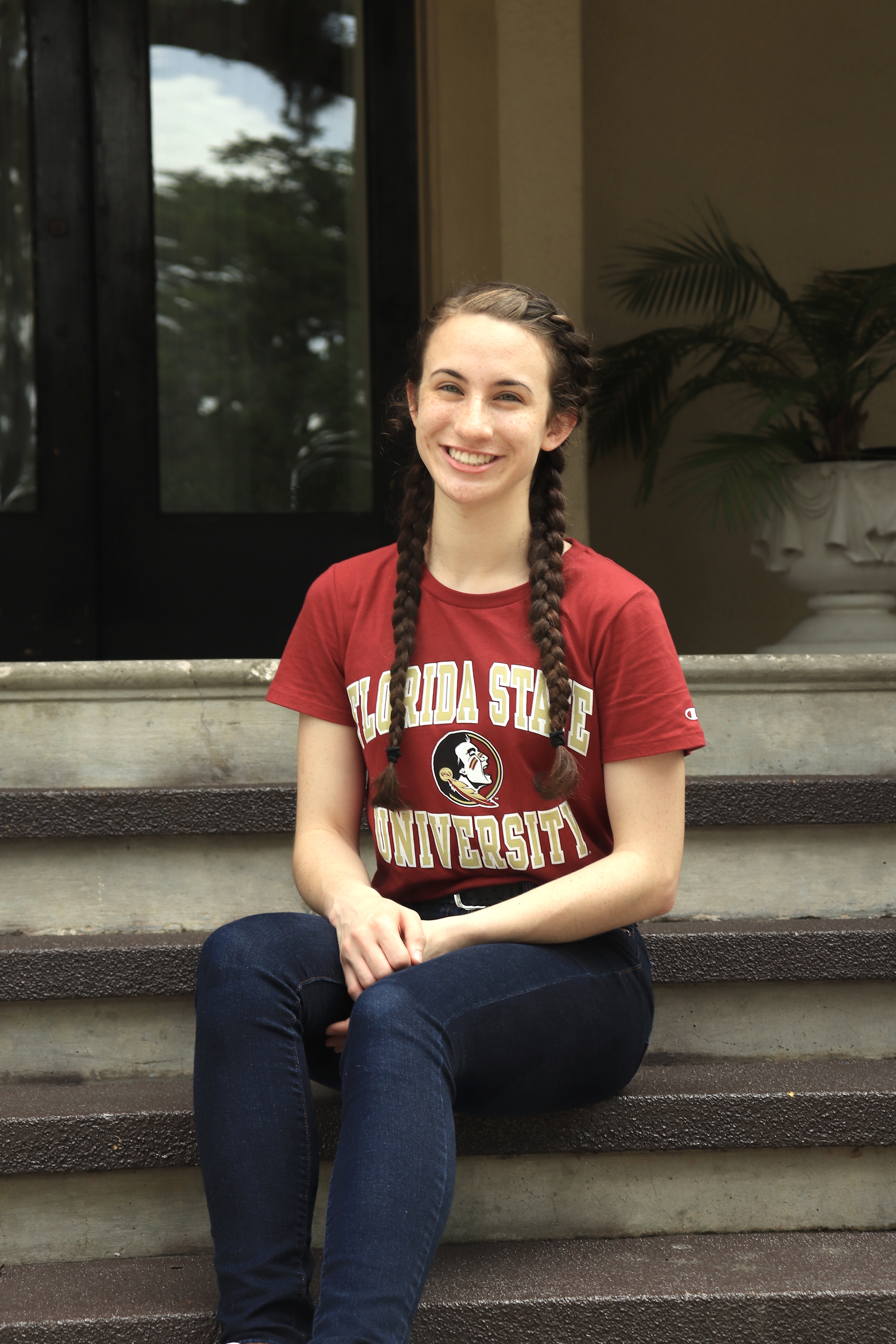
BIO
Isabelle Lednicky is a second year chemical engineering student at Florida State University. Her research interests include pathology, drug research and vaccine development. She hopes to pursue a career in one of these fields.
Assessing the Prevalence of Risk Factors for Leptospirosis in Rural Honduras
Authors: Isabelle Lednicky, Dr. Sunny NarayananStudent Major: Chemical Engineering
Mentor: Dr. Sunny Narayanan
Mentor's Department: Global Health Mentor's College: College of Medicine Co-Presenters:
Abstract
Leptospirosis is a bacterial illness caused by the Leptospira bacterium which is transmitted to humans through contact with infected animal urine and contaminated water. This puts people in developing countries without access to clean water (especially during periods of flooding) at highest risk for infection. Despite being the most common global zoonotic illness, Leptospirosis is severely underdiagnosed in rural areas, particularly in subtropical and tropical countries. Consequently, and without proper treatment, this disease often results in progression to serious side effects such as liver or kidney failure. The aim of this project is to come up with effective survey questions for community members to study the prevalence of risk factors for Leptospirosis in rural Honduras. We did so by first researching known risk factors and determined which ones would be most common in rural Honduras then created survey questions aimed at collecting data on what possible exposures the people living there have been exposed to and their symptoms from the last 4 weeks. Surveys will be sent to Honduras to be filled out by community members. This data in the future will be analyzed and complied to get a better understanding of how this disease is spread and what preventative measures we can put in place to prevent further outbreaks.
Keywords: Leptospirosis, Zoonosis, Infectious disease
22nd annual Undergraduate Research Symposium
Emily Maglin Poster Session 5: 1:30-2:15/Poster #39
BIO
My name is Emily Maglin and I am currently on a pre-medical track at FSU. I have been a camp counselor for the past four years and it was through that experience that I realized my passion for working with children. Thus, I plan on becoming a pediatrician so that I may combine that passion with my love of science and providing care to others. Aside from my career aspirations, I am a part of several student organizations on campus. I am a member of the FSU Swim Club, American Medical Student Association (Pre-medical chapter at FSU), and was recently elected as a student senator for the College of Arts and Sciences. And of course, my involvement in the Undergraduate Research Opportunity Program has sparked my interest and involvement in research. Outside of the academic sphere, I love to work out, hang out with my friends, play Guitar Hero, and go to the beach!
Disease Mechanisms of Arrhythmogenic Cardiomyopathy
Authors: Emily Maglin, Dr. Stephen ChelkoStudent Major: Psychology, Chemistry (minor)
Mentor: Dr. Stephen Chelko
Mentor's Department: Biomedical Sciences Mentor's College: College of Medicine Co-Presenters:
Abstract
Arrhythmogenic Cardiomyopathy is an inherited heart disease and a leading cause of sudden cardiac death (SCD) in the young, where exercise potentiates disease progression. ACM is brought on by mutations in genes that encoded the cardiac desmosome. Disruption of the desmosome results in myocardial inflammation, fibrotic remodeling, impaired heart contractility, and in severe cases, SCD. The current study utilized Dsg2 (mut/mut) mice, as well as age-matched wild-type (WT) mice and Dsg2 (mut/mut) mice with germline deletion of Colony Stimulating Factor-2 (Csf2-/-). Echocardiographic and ECG data were obtained from mouse hearts at 8 and 16 weeks of age after prolonged exercise exposure (via In-Cage Running Wheels with dedicated sensors for indefinite recording of distance and speed), and compared against differences in systolic function, ventricle sizes, and heart rhythm disorders [i.e., arrhythmias]. We hypothesized there will be a considerable difference in the amount of fibrotic scarring, cardiac dysfunction, and arrhythmias in Dsg2 (mut/mut) mice compared to both WT mice and Dsg2 (mut/mut;Csf2-/-) double-mutant mice after endurance running exercise. Results demonstrated that mice with homozygous mutated desmosomal genes and mice with heterozygous desmosomal genes display reduced running capacity and earlier onset of ACM. Furthermore, exercise-induced disease activation was observed in heterozygotic mice which was not previously seen in studies that used swimming as the exercise exposure.
Keywords: heart disease, ACM, mice, echocardiograms, medicine
22nd annual Undergraduate Research Symposium
Ava Jowers Poster Session 5: 1:30 - 2:15/Poster #56
BIO
Ava is a sophomore finance student from Fort Lauderdale, FL. She has been a researcher at the DeVoe L. Moore Center since October. Ava is also a member of Best Buddies and Women in Business at FSU.
The Sustainable Development of CollegeTown
Authors: Ava Jowers, Dr. Crystal TaylorStudent Major: Finance
Mentor: Dr. Crystal Taylor
Mentor's Department: DeVoe L. Moore Center Mentor's College: College of Social Science and Public Policy Co-Presenters: Olivia Rodrigue and Cameron Mullin
Abstract
Due to the rapid revitalization of Tallahassee’s CollegeTown urban area, researchers have assessed the potential impacts of sustainable development on residents, landowners, and the environment. Researchers employed the sustainability triangle model, allowing us to evaluate the sustainability of development through the perspectives of economics, environment, and equity. Researchers analyzed several datasets, including demographic data from the U.S. Census, crime data from the Tallahassee Police Department, and land use data from the Tallahassee Geographic Information Systems Department (GIS). Since the CollegeTown development was completed in 2013, total property values have nearly doubled, growing from $489 million in 2006 to $861 million in 2019. Research suggests property values will continue to grow even higher if property owners implement sustainable initiatives. Environmental research of solar energy and the CollegeTown area presents a positive increase in environmental benefits and favorable conditions for solar panels. The benefits of reducing 7.3 metric tons of carbon from the neighborhood's air annually, can increase air quality and reduce Tallahassee's share of greenhouse gasses, a major problem in today's world. Solar panel costs guarantee to pay themselves back in the long-run, and provide over $33,000 in benefits over 20 years. Throughout the development, residents of the CollegeTown area have seen gradual increases in income. Prior to the development, in 2010, only 7% of the households in the area (Census Tract 5) experienced income levels greater than $35,000 per household. By 2019, this figure had grown to 20.5%, with a median household income of $11,511 compared to $8,319 in 2010.
Keywords: Sustainable Development CollegeTown
22nd annual Undergraduate Research Symposium
Laura Arrieta Poster Session 5: 1:30 - 2:15/Poster #64
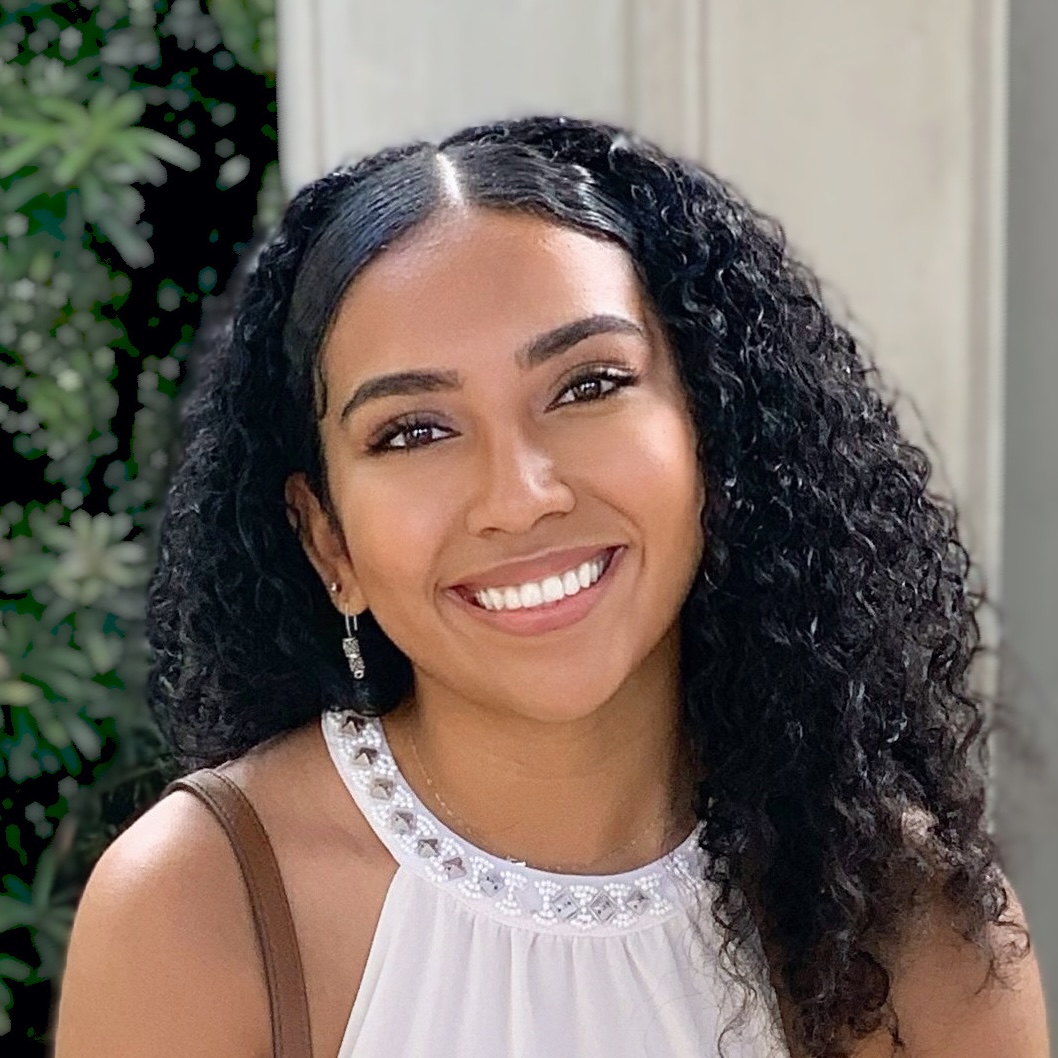
BIO
Laura Arrieta is an undergraduate transfer student double majoring in Criminology and Political Science. She aspires to get her master’s degree in Criminology and to then apply to law school. With goals of becoming a criminal defense attorney, Laura is passionate about helping systematically marginalized low-income communities. She is passionate about learning as much as she can, hoping to one day share her knowledge in a way that will give others a fighting chance in a country that contains institutions that are very evidently stacked against minority individuals. By participating in UROP, Laura has gained a growing love for research. She hopes to expand this new-found interest towards the criminology field in order to find solutions to further mitigate the variety of disparities found within disenfranchised communities dealing with the criminal justice system. A member of the Hispanic Honor Society and the Society of Black Female Future Attorney’s, Laura loves expanding her knowledge, nurturing friendships with others with similar aspirations, and serving the Tallahassee community that has done so much to welcome her as a new member.
Black Americans’ Experiences with Therapy and Barriers to Mental Health Services
Authors: Laura Arrieta, Chélynn Randolph, M.A.Student Major: Criminology & Political Science
Mentor: Chélynn Randolph, M.A.
Mentor's Department: Department of Human Development and Family Science Mentor's College: College of Health and Human Sciences Co-Presenters: Samirah Abellard
Abstract
Disparities in racially and ethnically marginalized communities associated with mental health help-seeking have been a growing concern within the U.S. healthcare system. In attempting to seek out mental health therapy services, Black Americans have encountered individual, environmental, and institutional barriers. Although current literature involving mental health stigma and perceptions suggests that these barriers have resulted in the underutilization of mental health services by Black Americans, the experiences of Black Americans encountering these barriers has not been thoroughly examined. Prior research has indicated a need for more qualitative studies involving Black Americans within the mental health system. This study aims to recognize the issues faced by Black Americans when seeking and participating in mental health services, delineating the different barriers that deter them from services, and analyzing what factors aid in overcoming said barriers. By using a transcendental phenomenological qualitative design with comparison groups, we have been able to focus interviews on the description of participant’s experiences in encountering and potentially overcoming barriers when seeking mental health services, rather than implementing our own interpretation of such experiences. This research is beneficial in that it can assist researchers in developing effective interventions to destigmatize and mitigate the barriers associated with help-seeking.
Keywords: Mental health, Black Americans, Barriers, Stigma, Therapy
22nd annual Undergraduate Research Symposium
valleria veras Poster Session 7: 3:30-4:15/Poster #38
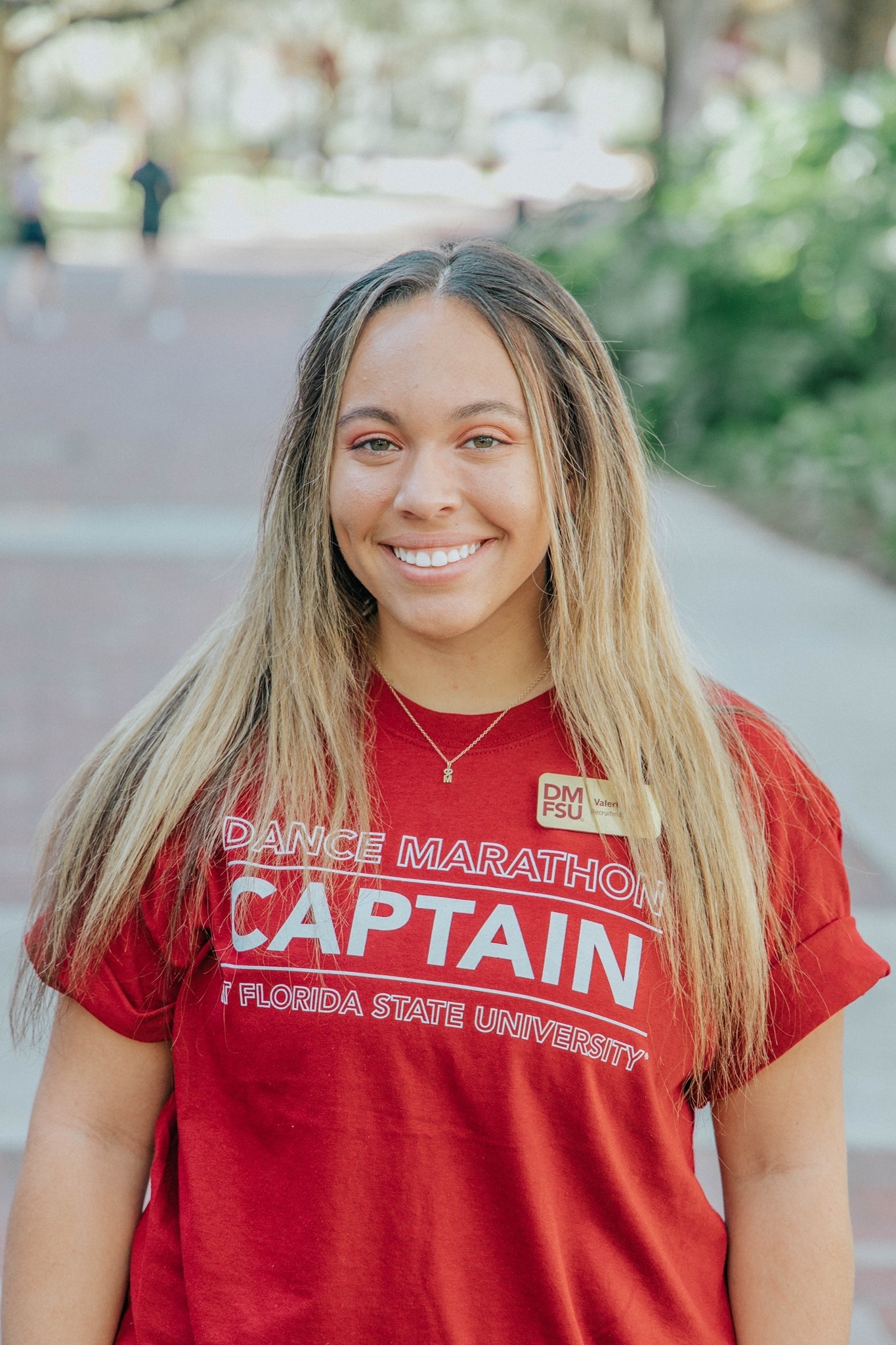
BIO
My name is Valeria Veras and I am a Sophomore from Panama City, Florida studying here at Florida State University. I am a political science and economic major with a minor in child development, aspiring to attend medical school soon after graduation. I have gotten the pleasure to work under Addie McConomy on her research project creating a tool that would eventually increase the retention rate of novice special education teachers. Through the UROP process I have been able to develop my interest for research, specifically within the Autism Institute.
Scoring Tools to Assist the Development of Special Education Teacher
Authors: valleria veras, Addie McconomyStudent Major: economics and political science
Mentor: Addie Mcconomy
Mentor's Department: Special Education Mentor's College: College of Education Co-Presenters:
Abstract
Over the past semester, I have been working with Addie McConomy on a project she
has created to collect data from experts that are experienced in special education teaching,
then use that information to create a scoring tool for novice special education teachers to
analyze themselves in their classroom in hopes to increase the retention rate for novice
special education teachers. A large sum of the data came for the video transcriptions of the
experts interviewed, which I was tasked to go over with a fine tooth comb and correct any
mistakes there may be so that Addie McConomy would have the most accurate data
possible. Due to the circumstances also known as Covid 19, the interviews had to be done
over zoom and zoom has automatic transcriptions. I was given a copy of the recorded video
as well as the transcriptions and used both to carefully go over each transcription. This
project has been set back due to Covid 19 and joining the Special Education teachers in the
classroom has not been possible, so there are not clear conclusions thus far. The
conclusions will come when the team is able to gather data and create the scoring tool. The
scoring tool will be given to the educators and they will be able to self - analyze their
abilities in the classroom and compare them to scores from observers. This will hopefully
lead to constructive criticism that will positively impact the novice teachers as well as
special education students.
Keywords: Special Education, Novice Teachers, Scoring Tools
22nd annual Undergraduate Research Symposium
Ashley Allen Poster Session 2: 10:00 - 10:45/Poster #32
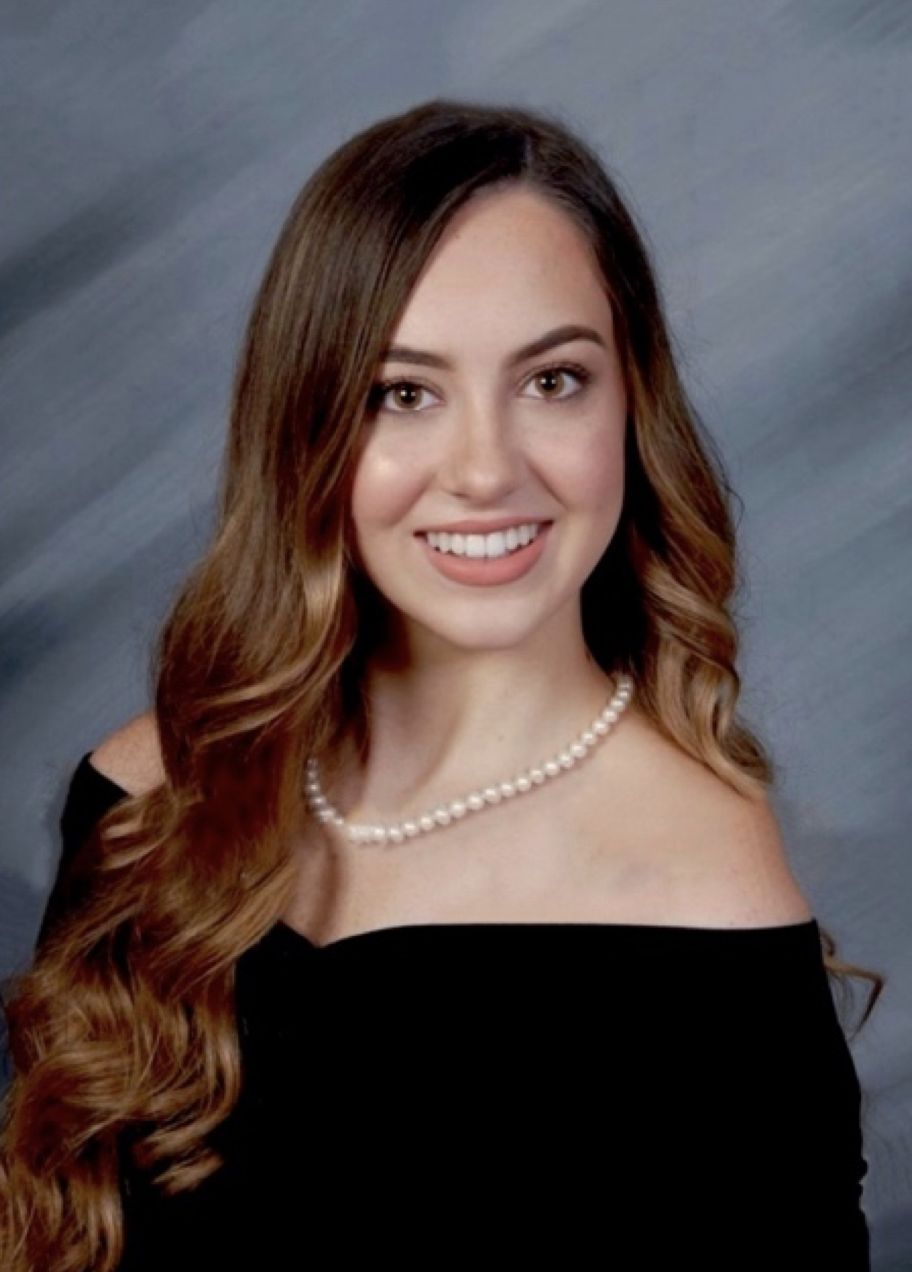
BIO
I am a junior studying Real Estate with specific interests within the field of investment, and marketing. I am from Ft. Lauderdale, Florida and I came to FSU in the fall of 2020 as a Freshman. I am looking forward to also receiving my Masters in Business Administration from Florida State University as well, and I aspire to be within the field of investment someday, hopefully working as a Financial Advisor. I enjoy sleeping, eating, and hanging out with my friends. I am also the Press Secretary for the FSU Student Senate and am involved in several RSO's on campus.
Body Worn Cameras and How They Create a Biased Perspective For Onlookers
Authors: Ashley Allen, Dr. Rachel BaileyStudent Major: Real Estate-Business
Mentor: Dr. Rachel Bailey
Mentor's Department: Doctoral Studies Mentor's College: Communications Co-Presenters: Tegan Siksta
Abstract
Body-worn cameras (BWCs) have grown in popularity within the last few decades. BWCs are used to record police interactions with citizens in order to protect both parties. These videos are often used as evidence in the court system. Research has proven that these body-worn cameras that the criminal justice system has been heavily relying on actually create a biased perspective. Currently, experiments are being done to find a solution to diminishing this biased effect. To evaluate how BWC perspectives might create an elicit bias, the BWC study was performed. Potential participants took part in a consent-interview that allowed for consent, and a space for explanation of what the study entails. Once the participant completed the BWC study, their reflections were studied and coded into a codebook named the BWC codebook. Their results were coded in eleven different ways all based on their bias of the study. Normative Officer, Normative Citizen, Normative Undetermined/Unspecified, Evaluation of the Officer, Evaluation of the Citizen, Evaluation Undetermined, Emotional Statement, Systematic Issue Raised, Information Needed/Seeking, Just Recap and No Code. The results of this data are still in the process of being gathered and evaluated. Further research will aim to create policies
that eliminate bias based on this evidence.
Keywords: Police, Body Worn-Cameras, Police Brutality
22nd annual Undergraduate Research Symposium
David Massengale Poster Session 4: 12:30 - 1:15/Poster #46
BIO
Hello, my name is David Massengale and I'm from Winter Park FL majoring in finance here at FSU. I plan on attending graduate school here at FSU as well in the Master's of Finance (MSF) program. My research interests are in technology, finance, and real estate and I would like to become a financial analyst or advisor at a financial firm in the future.
Investigating the Knowledge and Skills to Develop Mobile Performance Support Systems (MPSS) in North American Companies
Authors: David Massengale, Yao HuangStudent Major: Finance
Mentor: Yao Huang
Mentor's Department: Department of Educational Psychology & Learning Systems Mentor's College: Florida State University Co-Presenters: William Lleonart
Abstract
Mobile Performance Support Systems (MPSS) are programs, devices, and resources implemented in companies and organizations to improve job performance. In this project, we conducted qualitative data analysis with five individual interviews with NVivo12. The five interviewees were: a training coordinator from the U.S. Coast Guard, an instructional designer from a large international medical software and devices company, the Senior Manager of Learning Innovation from a home improvement business, a senior eLearning developer and project manager from an international restaurant franchise, and an instructional manager from a pharmaceutical manufacturing company. We reviewed transcripts, generated codes, and grouped codes into themes. While coding, we followed the research question, “What skills and knowledge are needed to design and develop MPSS in North American companies and organizations?” We each coded independently and developed codebooks with code names, criteria, and examples. Then we compared the similarities and discussed the differences in the codes. Finally, we developed themes and identified the preliminary results about skills and knowledge needed to design and develop an MPSS
Keywords: MPSS, Instructional Design, Data Analysis, Codebook
22nd annual Undergraduate Research Symposium
Carson Long Poster Session 2: 10:00 - 10:45/Poster #40

BIO
Carson is a first-year student at FSU studying Bassoon Performance, Linguistics, and French. His interests lie in early 20th century French music, indigenous language lexicography, and language learning. In the future, he would like to engage in more research on language learning and cultural perceptions of nonstandard language as well as pursue a career as a lexicographic consultant.
Learning a Second Language Unconsciously
Authors: Carson Long, Dr. Shaofeng Li, Ph.D.Student Major: General Music (B.A.), Linguistics
Mentor: Dr. Shaofeng Li, Ph.D.
Mentor's Department: Department of Modern Languages Mentor's College: College of Arts and Sciences Co-Presenters: Corey Burns, Luis Wong Chen, Gabi Zernik, Jeffrey Sims, Allie Cordero
Abstract
The purpose of this study is to assess the bearing of 3 different implicit language aptitude scores [LLAMAD, Artificial Grammar (AG), and Passive Priming (p)] on L2 speech performance. It was hypothesized that all three of these implicit aptitude scores would have significant positive correlations with L2 speech performance. 250 speech samples were recorded by Chinese college student English-L2 learners and rated on comprehensibility and accentedness. The averaged ratings were then compared to the students’ corresponding LLAMAD-, AG- and p-scores resulting from separate tests. It was found that LLAMAD-scores had a significant positive correlation, AG-scores had no significant correlation, and p-scores had a significant negative correlation with L2 speech performance. These results have a bearing on L2 education at large; L2 education traditionally centers on conscious (explicit) language-learning and scholars have called into question the exclusion of unconscious (implicit) language-learning. This data suggests conflicting support for the inclusion of unconscious language-learning streams into L2 curriculum.
Keywords: language, aptitude, syntax
22nd annual Undergraduate Research Symposium
Davone Simmons Poster Session 2: 10:00 - 10:45/ Poster #14
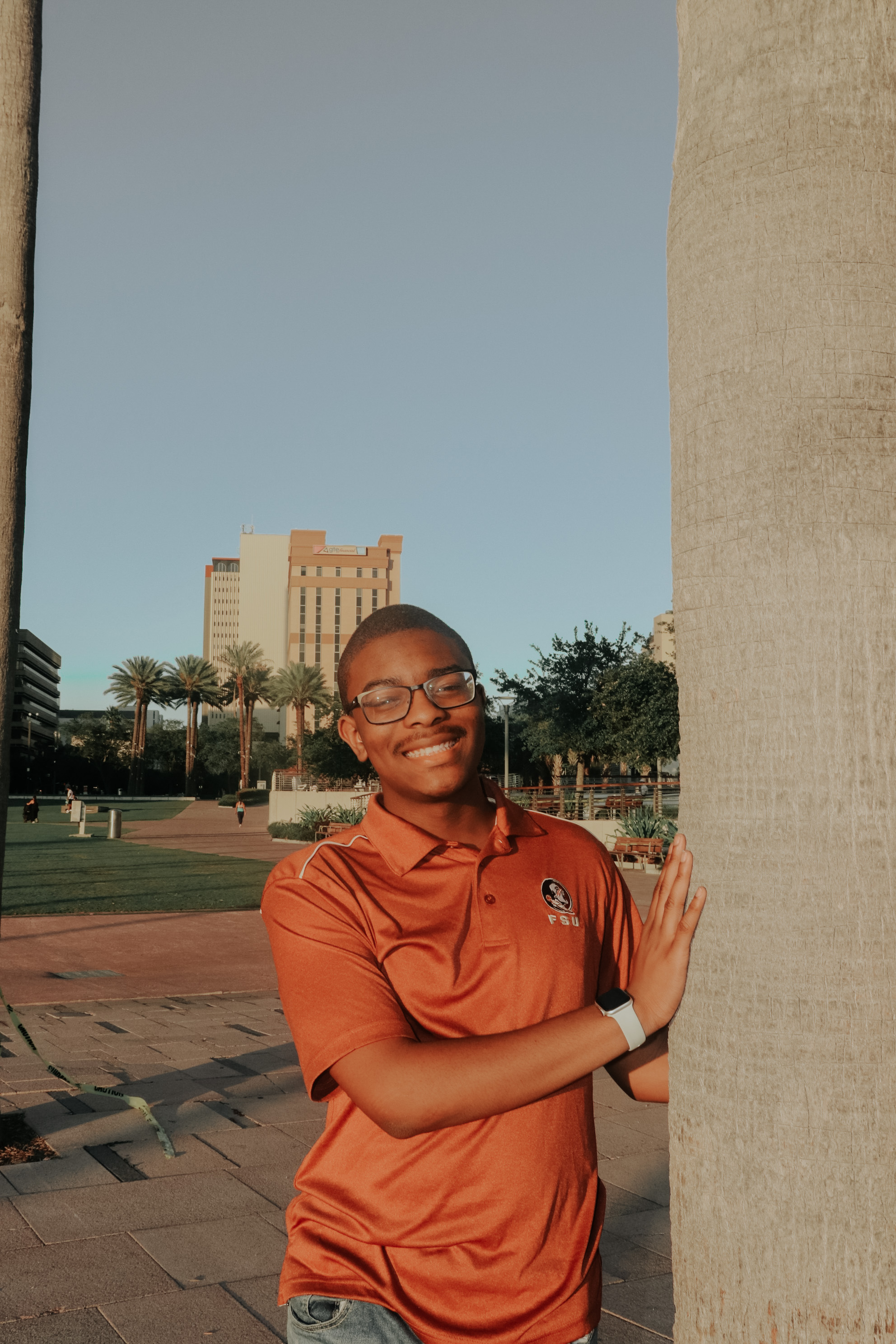
BIO
Hello, I am a second year Economics student from Tampa, FL with a minor in Statistics. My research interests lie within the intersection of social sciences and qualitative analysis, which this project allows me to do. Post graduation, I hope to enter the technology industry continuing research into data analytics and data science.
Constitutionality of Reparations & Affirmative Action
Authors: Davone Simmons, Taylor DarksStudent Major: Economics
Mentor: Taylor Darks
Mentor's Department: Sociology Mentor's College: College of Social Sciences & Public Policy Co-Presenters: Karissa Huggins
Abstract
In the city of Evanston, Illinois, reparations became a prominent conversation when policymakers decided it was time to rectify past wrongdoings to the Black community of Evanston. The concept of reparations, affirmative action and their constitutionality is the focus of this project. Affirmative action is the policy that favors individuals in marginalized groups. Both reparations and affirmative action, while separate concepts, spark similar conversations in the same spaces. Prior research highlights reparations in an opinionated context as legal action against or for them proves to be a hard task. This project aims to analyze the discourse surrounding reparations in the city of Evanston. Qualitative methods such as legal analysis, discourse analysis and coding articles are used to achieve this. Findings report that most conversation around reparations falls into categories that can be described as connotations; positive or negative. The significance of these findings lies in the analysis of the discourse that surrounds reparations and affirmative action. The discourse found seems to have heavy ties to the result of policy decisions, not just in Evanston, but affirmative action and reparations cases nationwide.
Keywords: Reparations, Affirmative Action, Qualitative
22nd annual Undergraduate Research Symposium
Kelli Cardenas Poster Session 5: 1:30-2:15/Poster #47
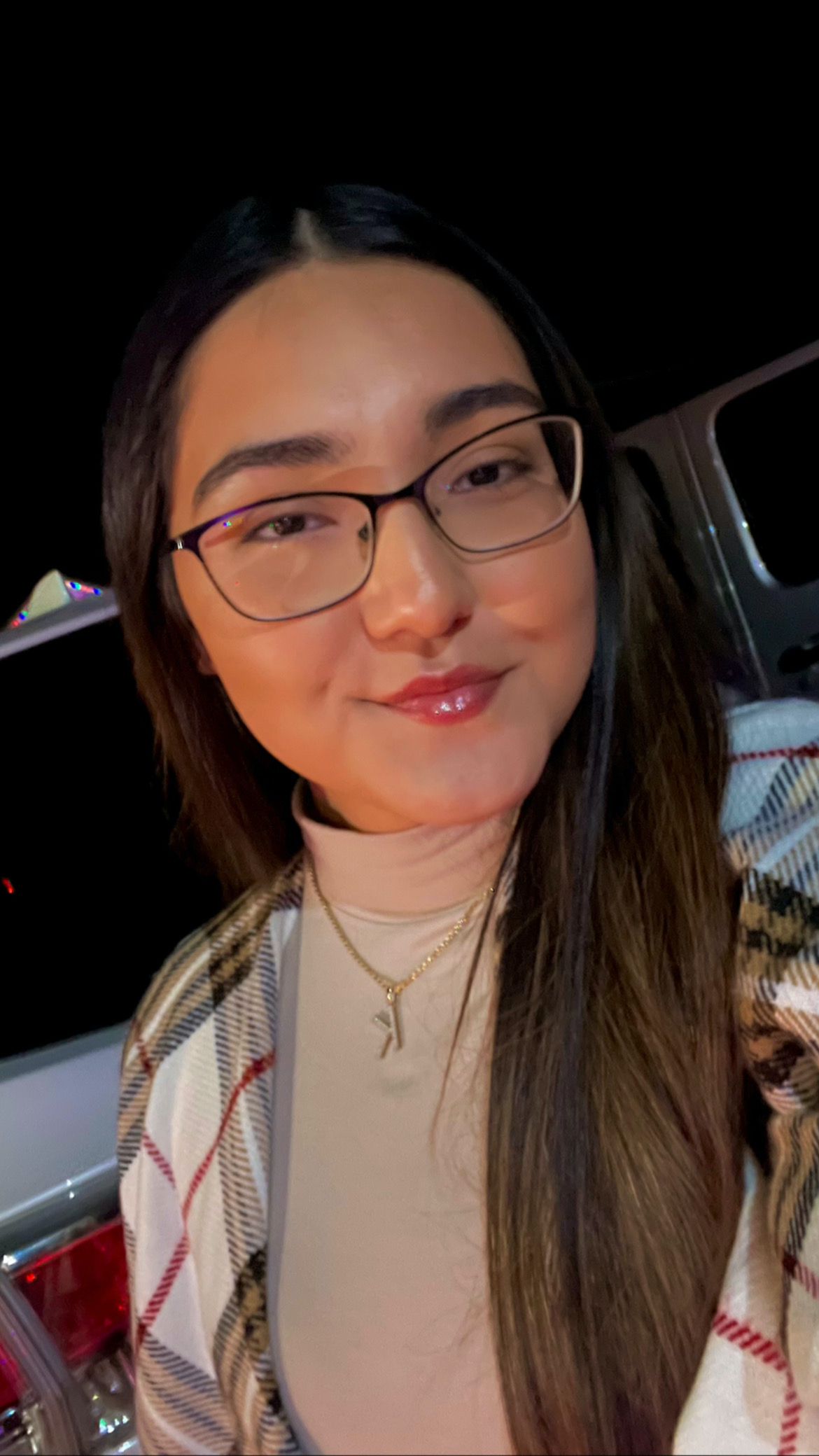
BIO
Kelli Cardenas is a sophomore from Plant City, Florida and is majoring in Management Information Systems. Her research interests are in technology and personal finance.
Data Management in Respect to Social Network Analysis
Authors: Kelli Cardenas, Joseph GrzywaczStudent Major: Management Information Systems
Mentor: Joseph Grzywacz
Mentor's Department: Human Development and Family Science Mentor's College: College of Health and Human Sciences Co-Presenters:
Abstract
Although Social Network Analysis has been around for quite some time, there is not much research regarding the issues that should be taken into consideration when it is applied to data. This project documents how to clean and manage data, prepare data, and visualize social network graphs. The aim for this project is to document the steps required to prepare, clean, manage, and analyze social network data. This study will use data already collected from previous projects to practice managing the data before using it for visualization. When working with social network data the data is clustered, therefore making it violate the typical interdependence often seen in analysis. This, among other difficulties, makes it important for Social Network Analysts to understand the importance of being able to manage the data properly. This study will be using the program R to manage the data and visualize the data. It is expected that after managing and visualizing the data it can be used for analysis to better understand how social networks can be used for health behavior interventions.
Keywords: Data Management, Social Network Analysis
22nd annual Undergraduate Research Symposium
Karen Bogomolni Poster Session 7: 3:30 - 4:15/Poster #50
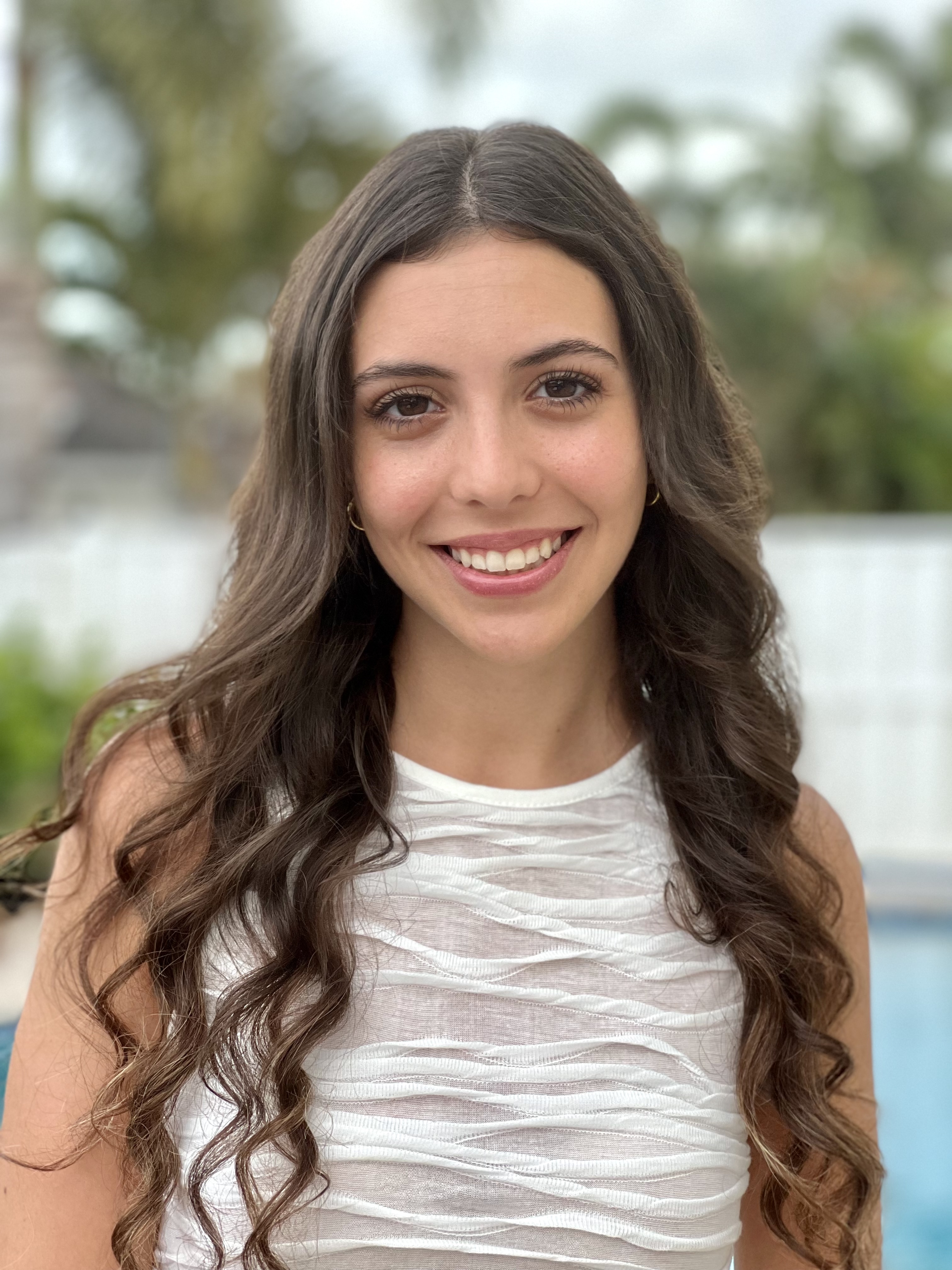
BIO
My name is Karen Bogomolni and I'm currently a sophomore at FSU. I'm from Fort Lauderdale, Florida. I am majoring in nursing hoping to become a Women's Health Nurse Practitioner. I'm very interested in research, especially about well-being.
Social Media and Happiness During COVID-19
Authors: Karen Bogomolni, Stacey RutledgeStudent Major: Nursing
Mentor: Stacey Rutledge
Mentor's Department: Educational Leadership and Policy Studies Mentor's College: College of Education Co-Presenters: Brooke Bascom, Emie Morris, Timothy Robinson
Abstract
Through the COVID-19 pandemic, students and teens have been challenged with learning remotely and relying ever more on technology to interact with each other. Our study investigates teen social media use and ratings of happiness. Focusing on the positive and negative attributes the participants feel utilizing distance learning and online friendships, we expand this investigation to include the changes in the personal habits and mental health of the participants. There were 43 participants from ages 12-18. Participants were interviewed twice for 1 hour with a researcher and kept week-long video diaries where they recounted their day and their use of social media. This was done for the summer of 2020 and 2021. Using the interviews and the personal video diaries, we utilize Qualtrics forms to code the data into the social media, personal habits, and schooling categories. We expect to find that most teens acknowledge social media as a positive attribute to their happiness with overuse generating negative effects on their happiness. To date, this research project is still in the preliminary phase, and in the future, it will be used to further expand our knowledge on mental health and social media usage.
Keywords: Social media, teenagers, COVID-19
22nd annual Undergraduate Research Symposium
Hunter Click Poster Session 2: 10:00-10:45/Poster #39
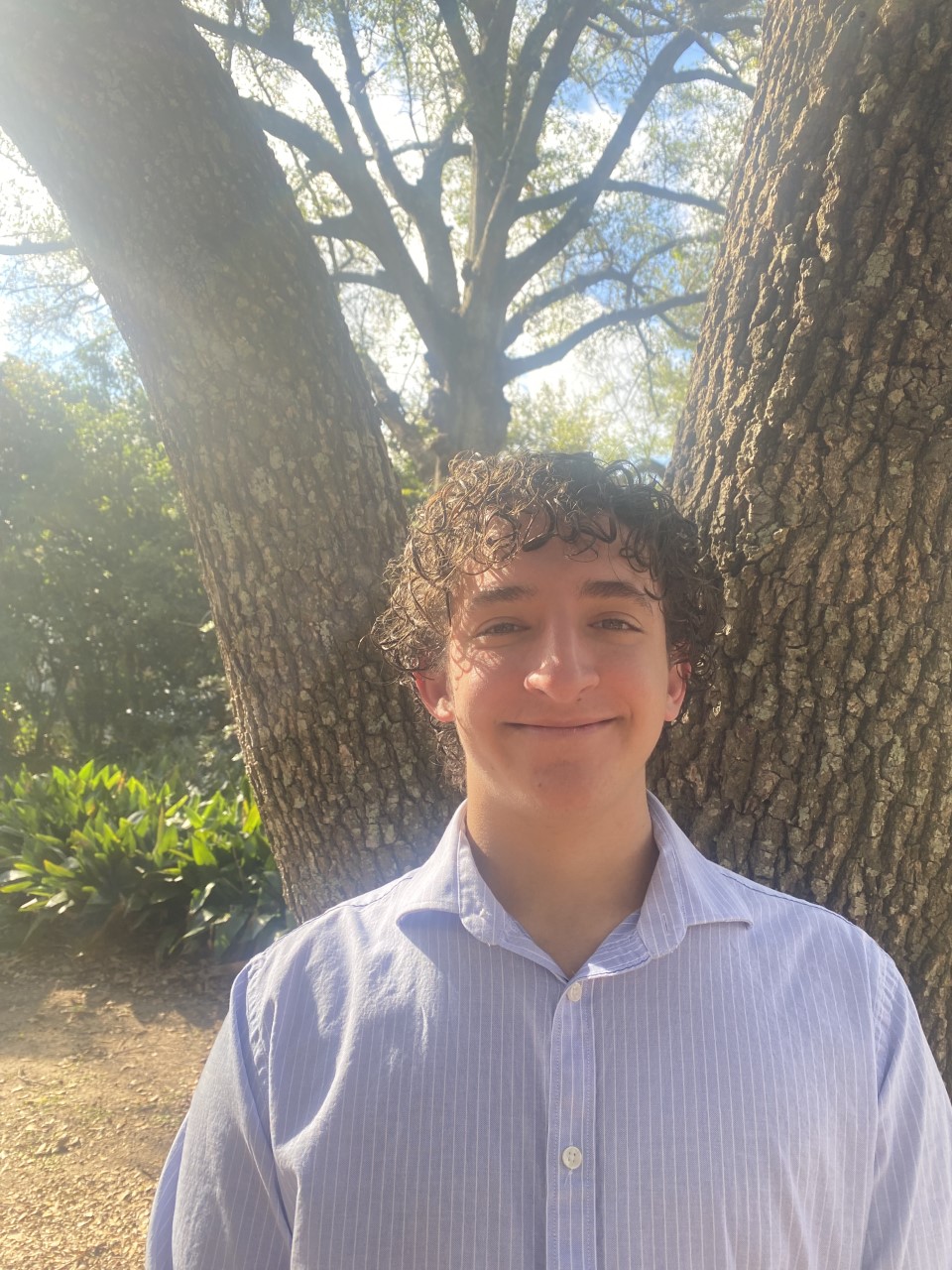
BIO
I'm Hunter Click and I'm from Jacksonville, Florida, and I am a senior majoring in Political Science. I'm also a student in the Honors College as well as the Research Intensive Bachelor's Certification program. My research interests include polarization, political uses of social media, and public opinion. In the future, I'd like to do more research on these specific areas and pursue a career as a data analyst in the campaign field.
The Web of Lies: The Spread of Hyperpartisan News and Extreme Polarization
Authors: Hunter Click, Dr. Matthew PietrykaStudent Major: Political Science
Mentor: Dr. Matthew Pietryka
Mentor's Department: Department of Political Science Mentor's College: College of Social Sciences and Public Policy Co-Presenters:
Abstract
The mission that lies within this research project is to evaluate and pinpoint the effects that “fake news” places upon the information gathering activities of participants. It achieves this mission by responding to two questions in reference to the behavior over networks. The first question presented is as such: Can a user of social media detect and differentiate aspects of fake news from a sea of truth? Consequently, the second question is as follows: Would a user willingly choose a piece of fake news over news that is truthful, and if so, why? This research project will observe all of the various factors that could influence a user to favor fake news over news that is truthful, such as partisanship, topic relevance, and endorsement levels. This is an analysis and discussion of current literature alongside reviewing the lack of significant empirical studies covering the effects of fake news in the form of political knowledge gathering activities. The questions shown above will be answered by an experimental conjoint analysis survey that mirrors the social media feeds of participants. Thus, investigating the ultimate effect that fake news places upon society, an effect that is, in the study of political science, both unique and new.
Keywords: Social Media Misinformation Facebook Partisan
